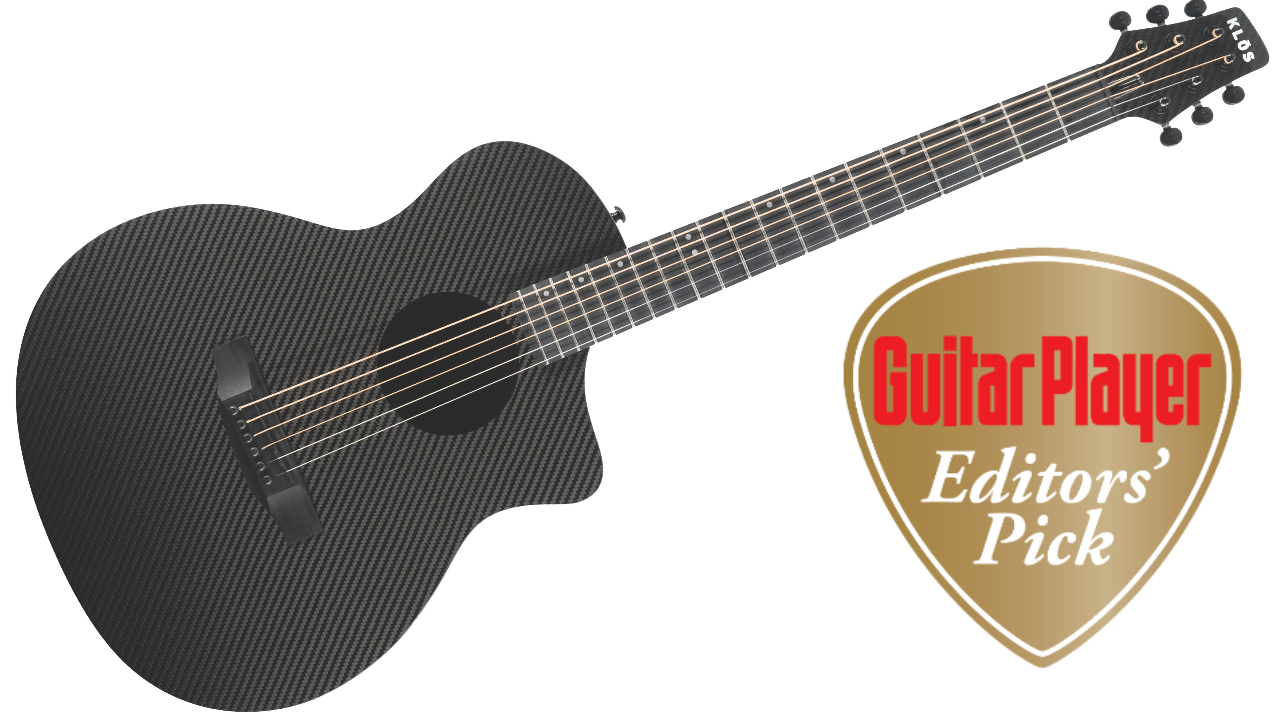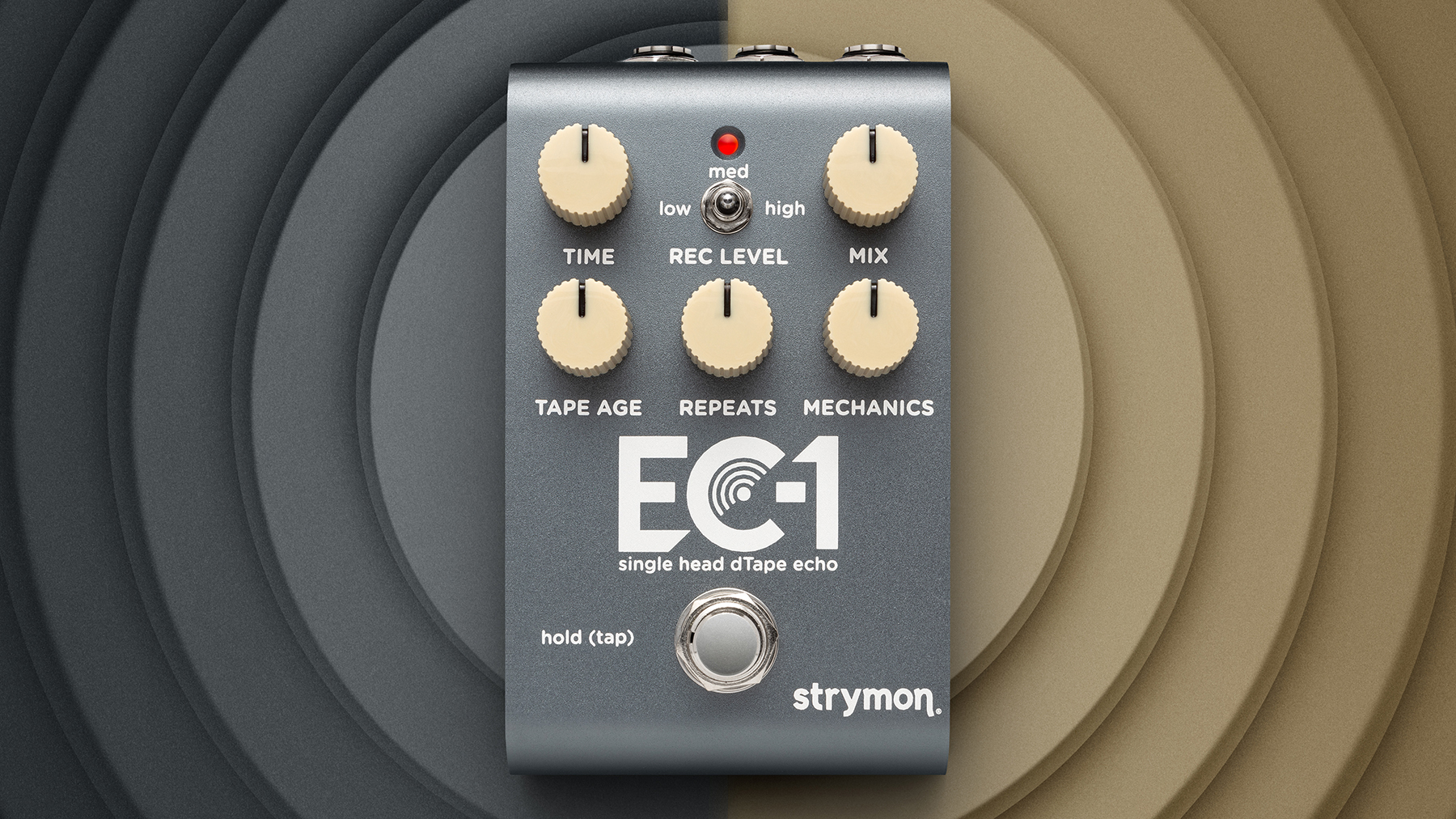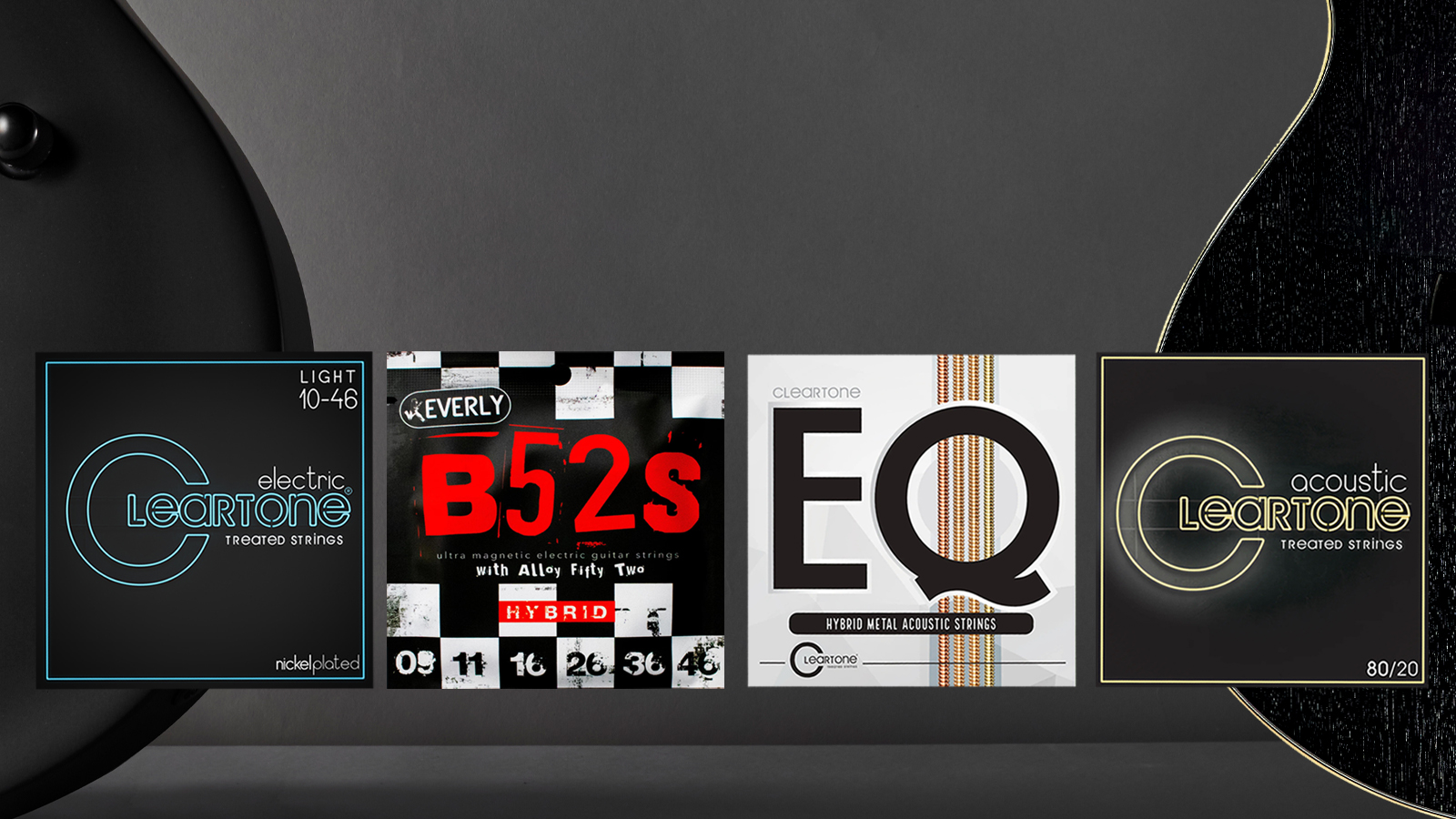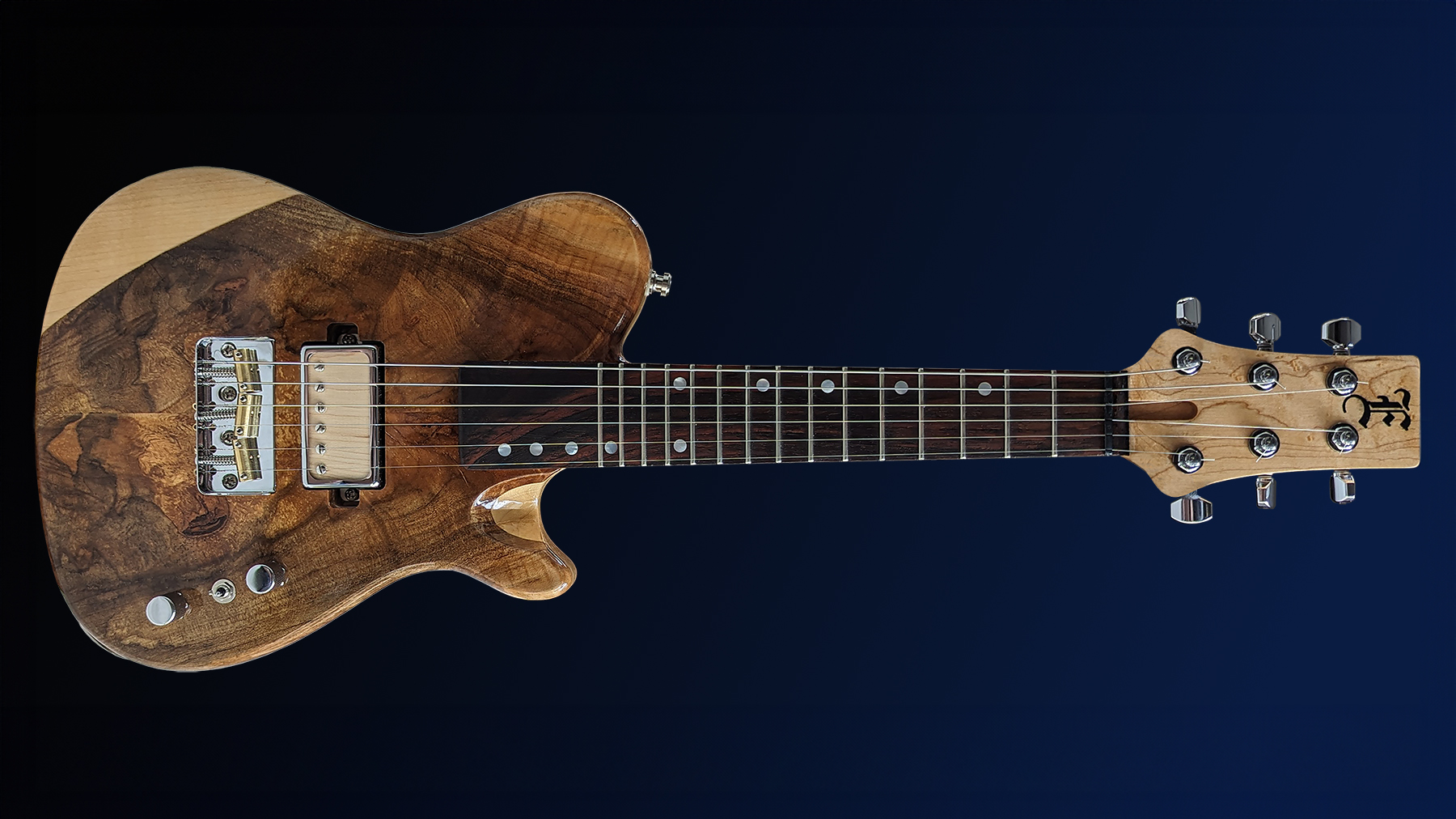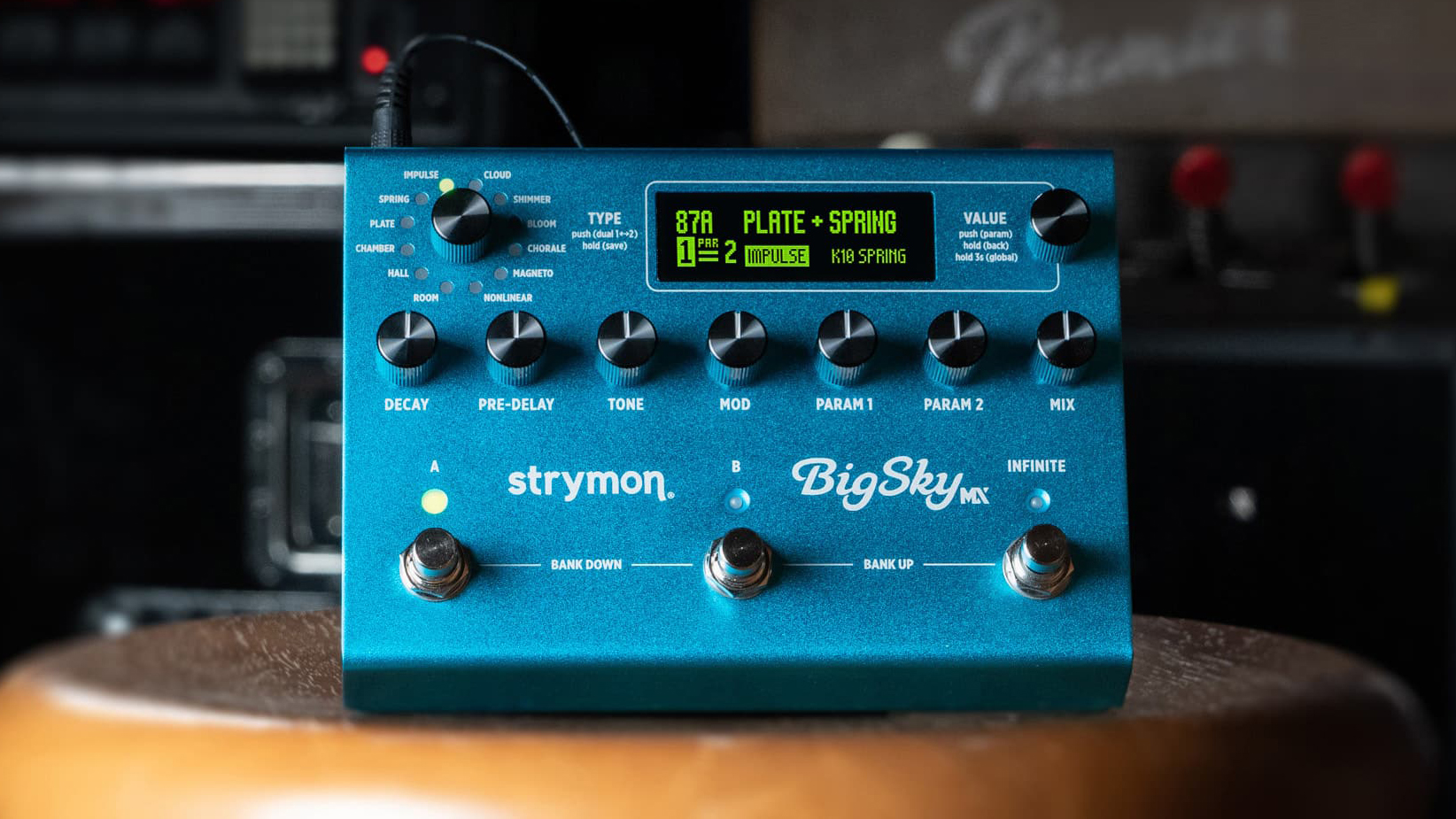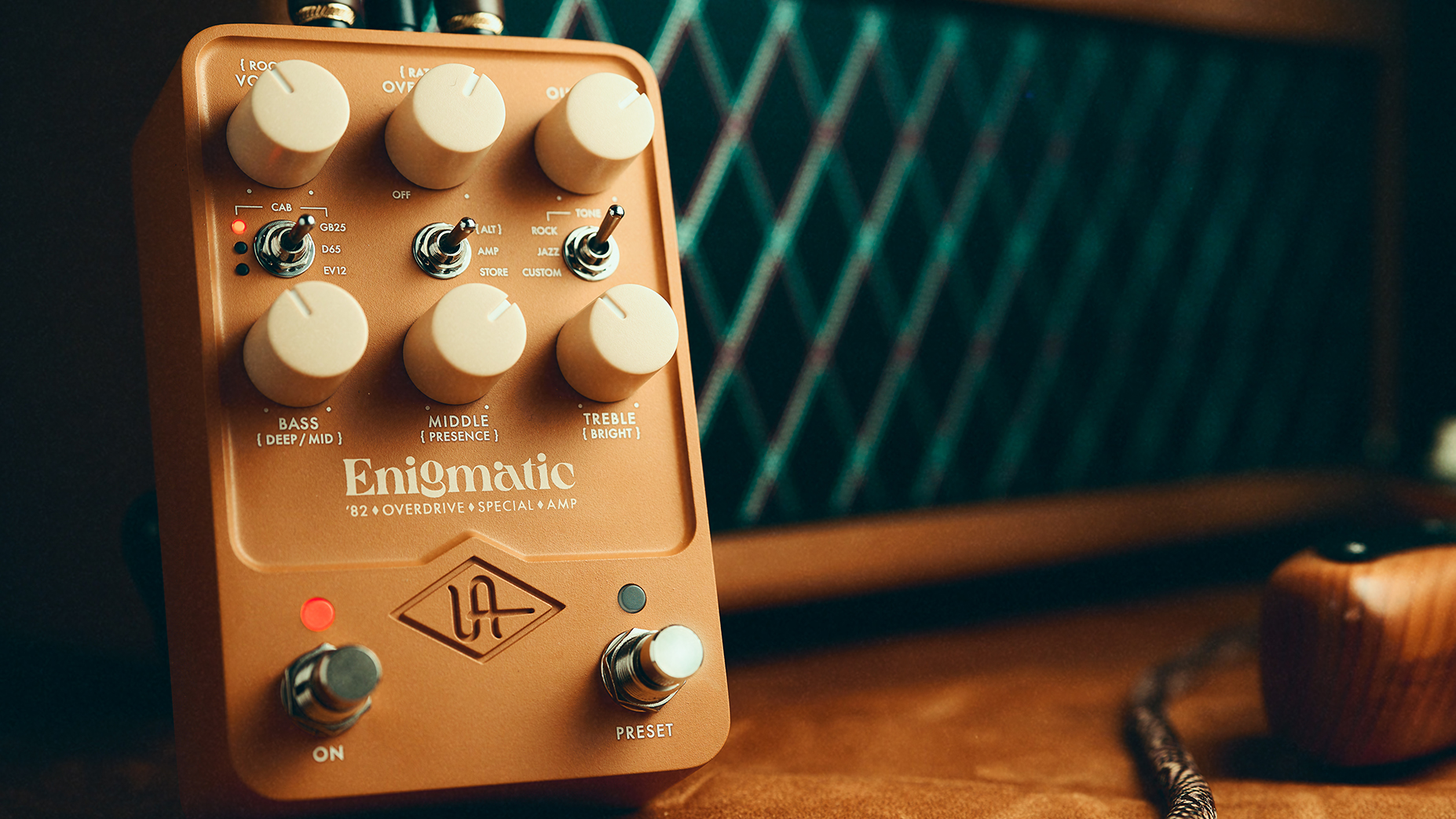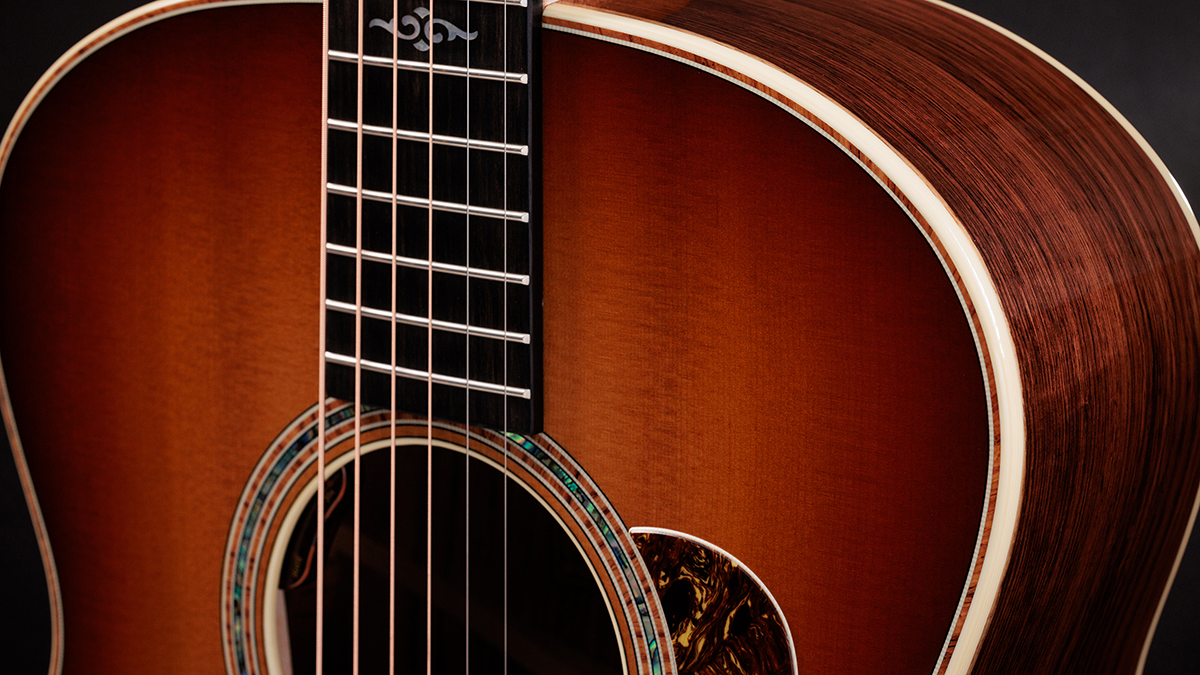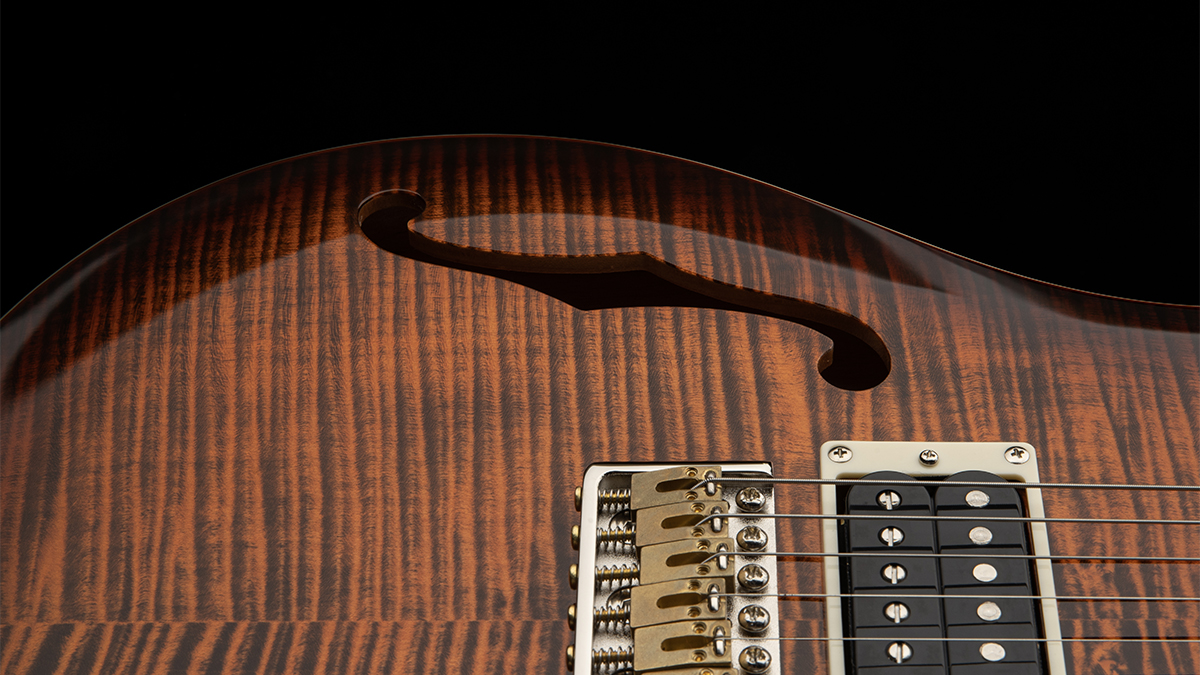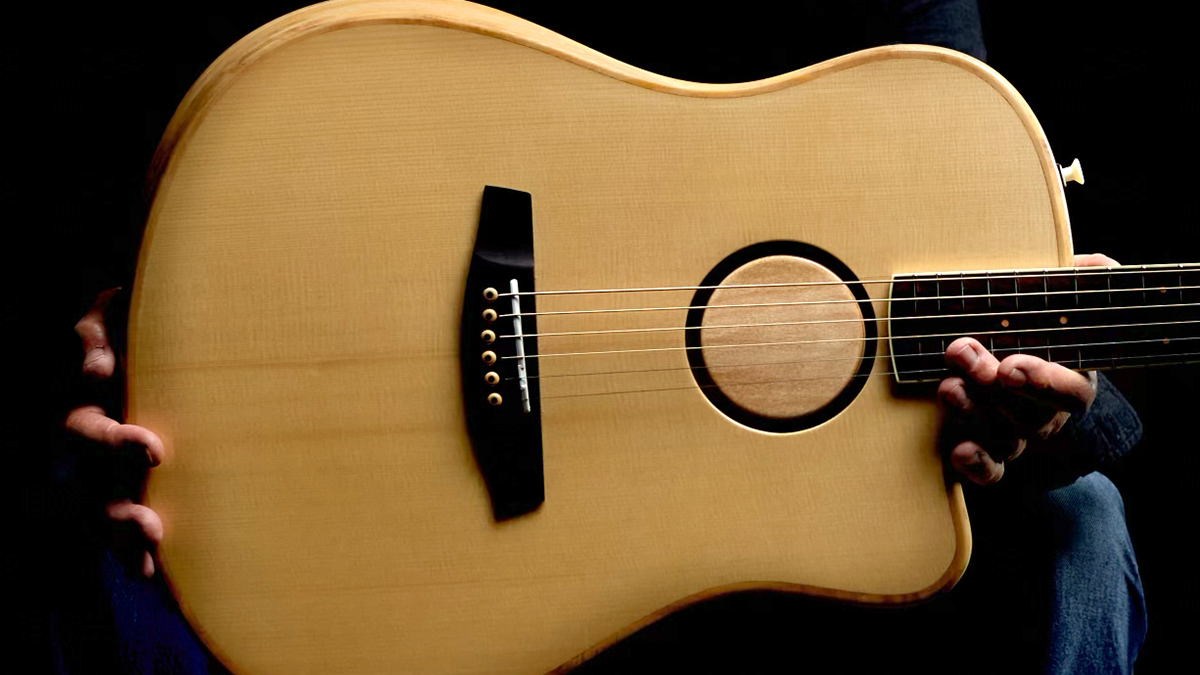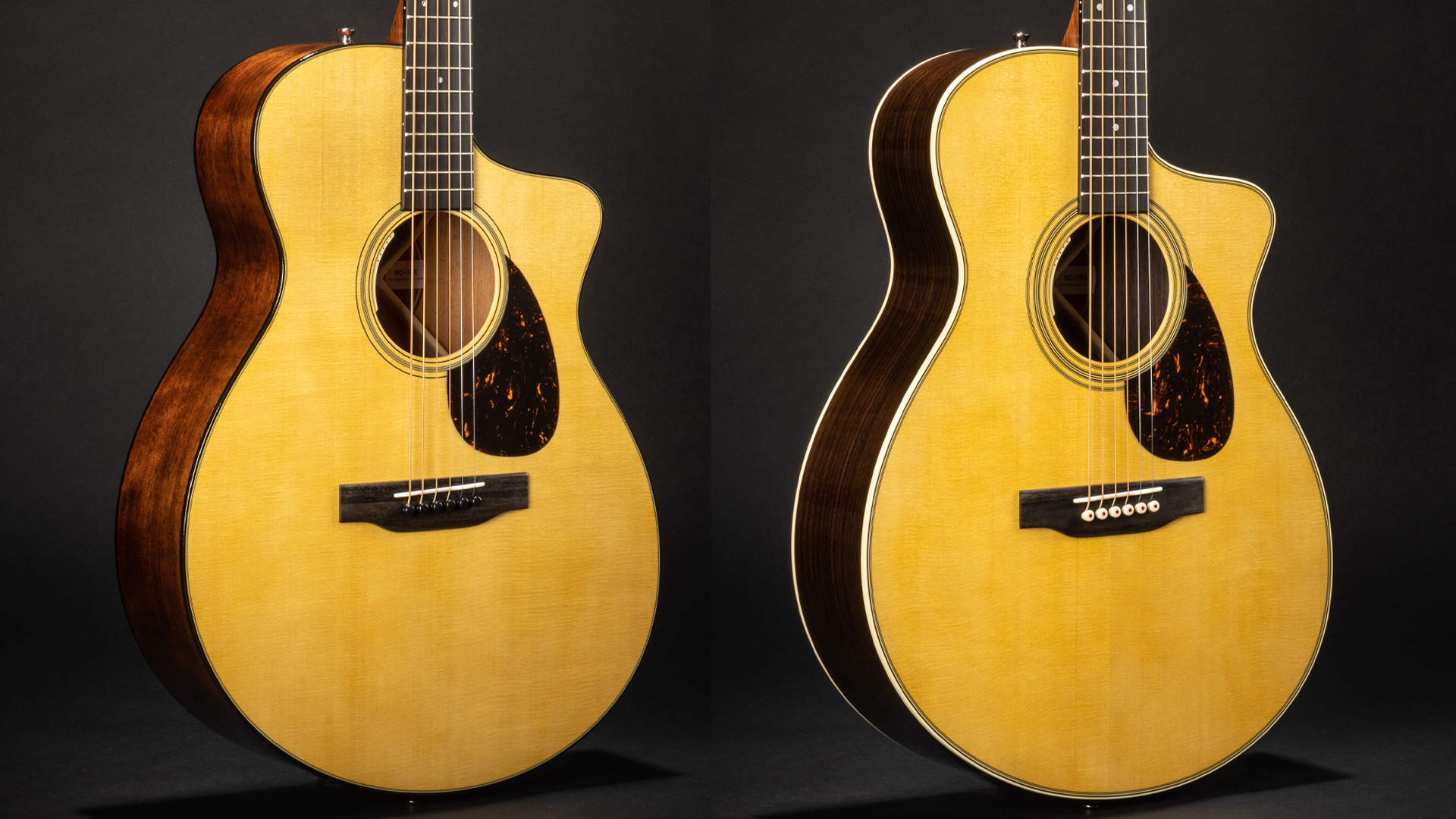GuitarPlayer Verdict
A rare combination of portability, playability, tone, and gig-worthiness ; if you’re looking for a travel guitar, this one fits the bill
Pros
- +
Comfortable body size
- +
Bass that belies the guitar's size, with impressive projection
- +
Ultra-portable
- +
L.R. Baggs Anthem-equipped model sounds stunning
Cons
- -
Action can need some adjusting, depending on your playing style
- -
Carbon fiber look can be polarizing
- -
Not the cheapest in the travel guitar category
You can trust Guitar Player.
Carbon fiber lifestyle brand Klos (pronounced like the opposite of “far”) is rolling out a gang of new gear, and the Grand Cutaway Mini is particularly compelling because of its unique size and features. Travel guitars put Klos on the map and remain its most popular size, but the company is gaining ground in the full-size market with models like the new grand auditorium Grand Cutaway.
The GC Mini essentially splits the difference. The concept is a road-ready, seaworthy instrument that delivers fuller sound and better playability than a typical travel guitar, along with gig-worthy electronic options.
GP was excited to try one of the first GC Minis built with an L.R. Baggs Anthem. It packs the promise of a perfect on-the-go guitar for dedicated cruiser lifestylists and working players alike, so we were curious to see what it would deliver.
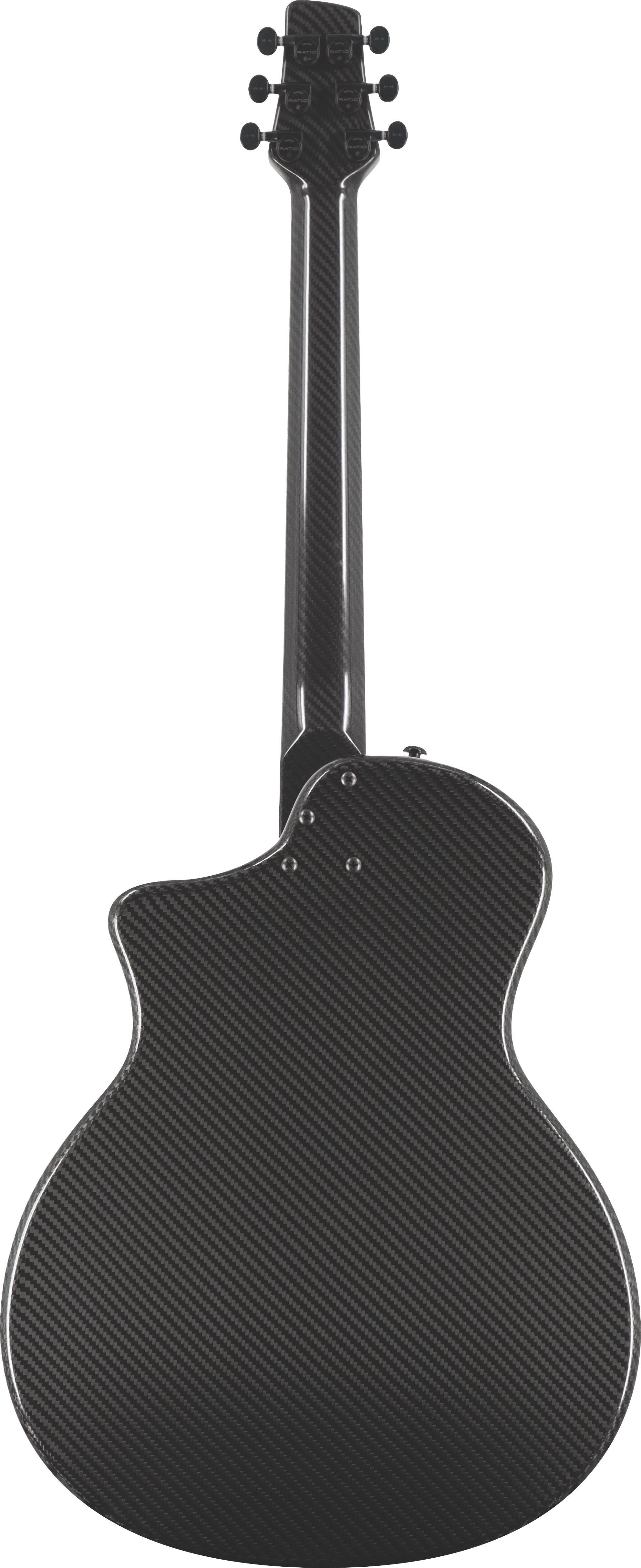
Some assembly required
The guitar arrived in a convertible gig bag/backpack, with the neck in its own compartment. A little tool kit including the neck bolts, a screwdriver, hex wrench and the bridge saddle were in a pocket, as indicated by a note, with a QR code linked to an assembly video.
It was a snap to bolt on the neck and set the bridge saddle on the piezo transducer pickup strip. The action on the top three strings fretted out a bit with the guitar tuned to standard pitch, but a quick loosening of the truss rod made the action almost agreeable.
As I can be an aggressive player, and one who uses acrylic nails no less, I called Klos headquarters for advice. They explained that while most of their players prefer low action, it’s a cinch to make a little shim to raise the action. I followed their advice using a shim of cardboard under the saddle and above the piezo strip, and it did the trick.
Body shop talk
With the guitar set up to my satisfaction, my first thought was, ‘Wow, what a comfortable body size!’ It’s significantly smaller than a triple or double 0, but not too tiny, and the depth is similar. The 24 ¾–inch scale length is slightly shy of a triple 0, and it’s just long enough to give the Mini a proper string feel under the fingers and the flexibility to handle dropped tunings while facilitating easy bending.
It’s rare to find a cutaway, and the combination invites easy access to the entire fretboard, even when standing up. Large cats might want to go for the full Grand, but I wear a men’s medium shirt and can testify that the GC Mini feels quite cozy, and it fits in an airline carry-on compartment, even with the neck attached. Add in the backpack factor and portability is superior.
In addition to being a great grab for a quick play at an office desk, it’s ideal for nature treks, sailing trips, or a van-life excursion.
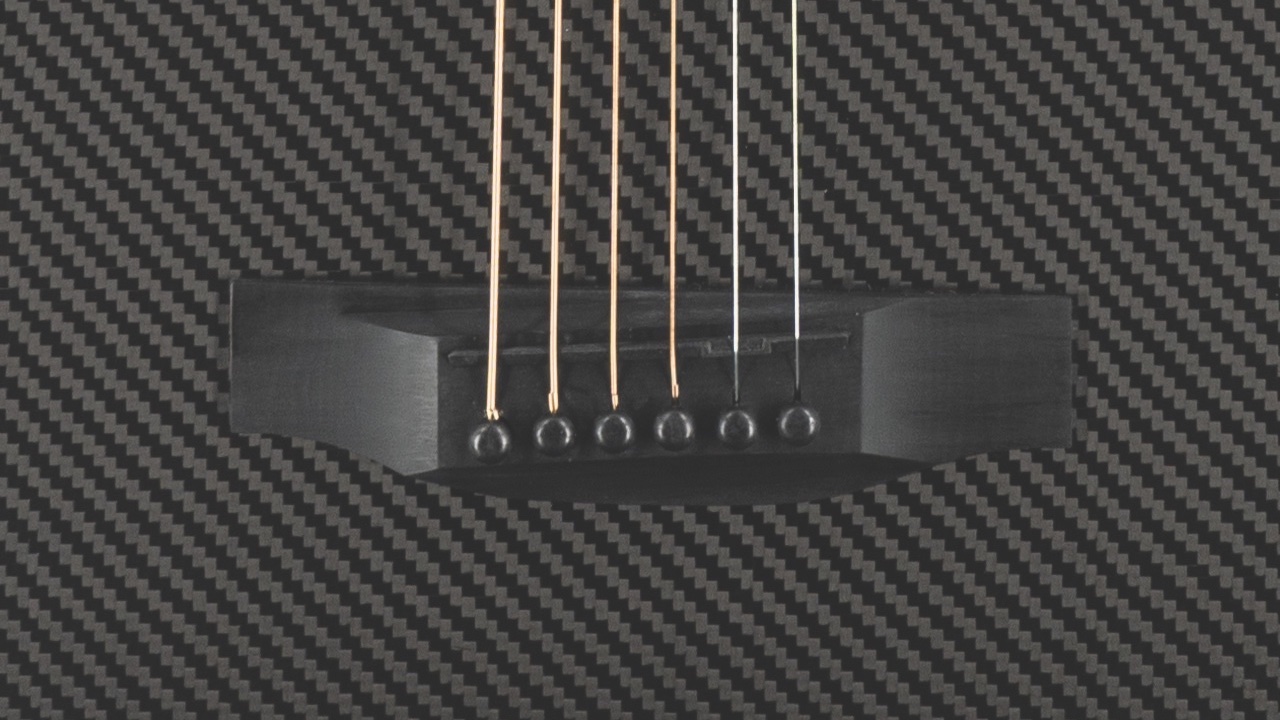
Carbon nation
Carbon fiber construction is key to the Klos lifestyle philosophy as it’s not susceptible to reasonable changes in temperature or humidity and offers superior durability. The GC Mini fares pretty well in side-by-side comparisons to comparable instruments, but there aren’t many direct comparisons to be made, as this is an uncommon instrument.
The most important revelation is that the Klos Grand Cutaway Mini sounds wondrously full in its own ecosystem. The tone has carbon fiber’s familiar EQ curve, with scooped mids, present highs, and a clear bass boom. The bass on the Grand Cutaway Mini belies its size, and projection is impressive.
A carbon fiber music vessel this good can be just as inspiring as a wooden one, and a smartly designed small guitar can hold its own compared to a bigger one. It was a joy to play the Grand Cutaway Mini while strolling up and down the beach, during which time a new tune idea came through that probably wouldn’t have happened any other way.
I recorded my ideas into my iPhone, and when listening back later, I was momentarily confused about which guitar was on the recording, which is a perfect demonstration of how full it sounds.
It was also a relief not to worry about the guitar being out in direct sunlight or getting cold at night, or to have to think much about the weather at all. It was nearly 80 degrees on that freaky-warm January day along the California coast, with waves crashing nearby and sand whirling about in the breeze. Under the stars on the hotel balcony late that night, the temperature dropped 30 degrees, and the action remained unchanged.
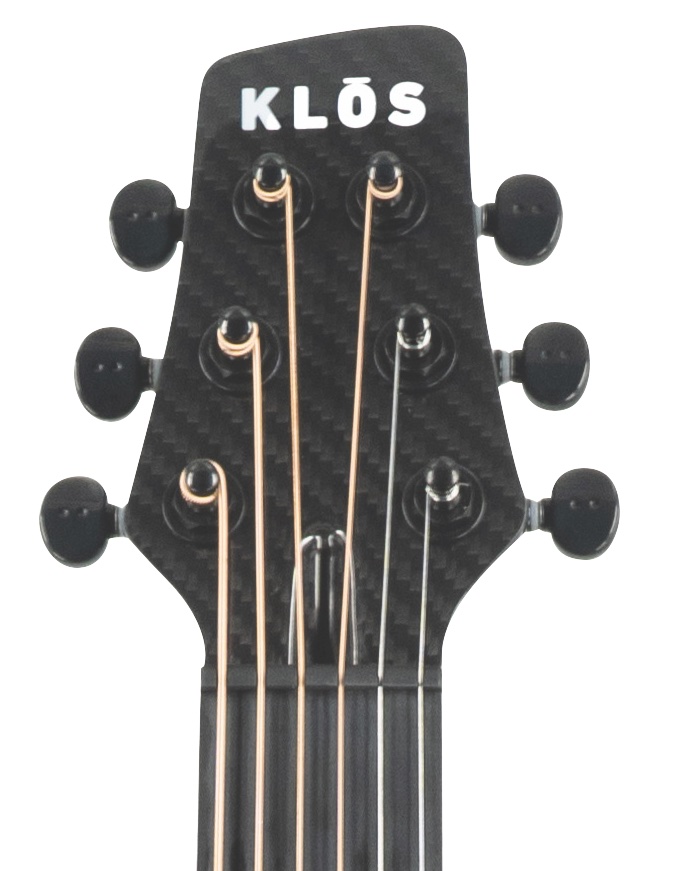
Amped up
The last test was amplification. There are all sorts of options available on Klos guitars, from extra side sound ports to different build materials and a variety of electronics. For this review, I opted for the standard build but went all in on the acoustic-electric upgrade to an L.R. Baggs Anthem dual-element system, hoping to find the elusive travel-friendly, gig-worthy guitar.
Plugged into an L.R. Baggs Synapse Personal P.A., the Klos Grand Cutaway Mini sounded beautiful and almost unbelievably bountiful in the bottom end while being present, but not brittle, on top. It’s absolutely gigworthy with the Anthem onboard, and the Tru Mic technology allows the user to mix in the desired amount of mic signal to provide an open, organic mic tone that’s especially welcome on a carbon fiber instrument.
To understand the price range, the base acoustic model costs $1,959, and the default acoustic-electric with Fishman Sonitone is $2,099. Add another $110 for the K&K Pure Mini, or $300 for the Anthem.
Honorable mention
While carbon fiber can polarize guitarists, many dig the look, and numerous people I met had a positive reaction to the Grand Cutaway Mini, with members of the general public raving about its cool unique look.
Klos also offers its Hybrid Series, which incorporates wooden components, such as a mahogany neck, and costs less. There’s also the new Carbon Timber, on which the carbon fiber grain is straight, rather than woven. I had only a quick chance to hear it at the noisy NAMM show, and to my ears it was both a little less boisterous and more subtle, with perhaps sweeter sustain, which makes sense, as the top can resonate more freely without the fiber weave.
GP applauds Klos for its initiative in creating interesting carbon fiber instruments, and they hit the design target with the Grand Cutaway Mini. If you’re looking for a travel guitar, this one fits the bill. The cost is not small, but if this guitar makes sense for your lifestyle, it’s worth checking out. For its rare combination of portability, playability, tone, and gig-worthiness, the GC Mini earns an Editors’ Pick Award.
Klos Grand Cutaway Mini – Specifications
CONTACT Klos
PRICE $1,959 direct for acoustic; $2,399 as tested with L.R. Baggs Anthem
NUT WIDTH 1 11/16”, Tusq
NECK Carbon fiber
FRETBOARD Composite ebony, 24.75” scale length
FRETS 20 medium stainless-steel
TUNERS Standard Klos
BODY Full carbon fiber
BRIDGE Composite ebony
ELECTRONICS Optional for additional charges: Fishman Sonitone, K&K Pure Mini or as tested with L.R. Baggs Anthem
CONTROLS Sound hole flywheels for volume and mic level, phase and battery test buttons
FACTORY STRINGS Cleartone Acoustic Phosphor Bronze Light (gauges .012–.053)
WEIGHT 3.4 lbs (as tested)
BUILT Designed and hand assembled in USA
KUDOS Unique balance of size, durability, playability and tone, both acoustic and amplified
CONCERNS It’s a little pricey
Jimmy Leslie has been Frets editor since 2016. See many Guitar Player- and Frets-related videos on his YouTube channel, and learn about his acoustic/electric rock group at spirithustler.com.
"Why can't we have more Django Reinhardts going, 'F*** everybody. I'll turn up when I feel like turning up'?" Happy birthday to Ritchie Blackmore. The guitar legend looks back on his career in an interview from our December 1996 issue
"This 'Bohemian Rhapsody' will be hard to beat in the years to come! I'm awestruck.” Brian May makes a surprise appearance at Coachella to perform Queen's hit with Benson Boone
"Get off the stage!" The time Carlos Santana picked a fight with Kiss bassist Gene Simmons and caused one of the guitar world's strangest feuds
